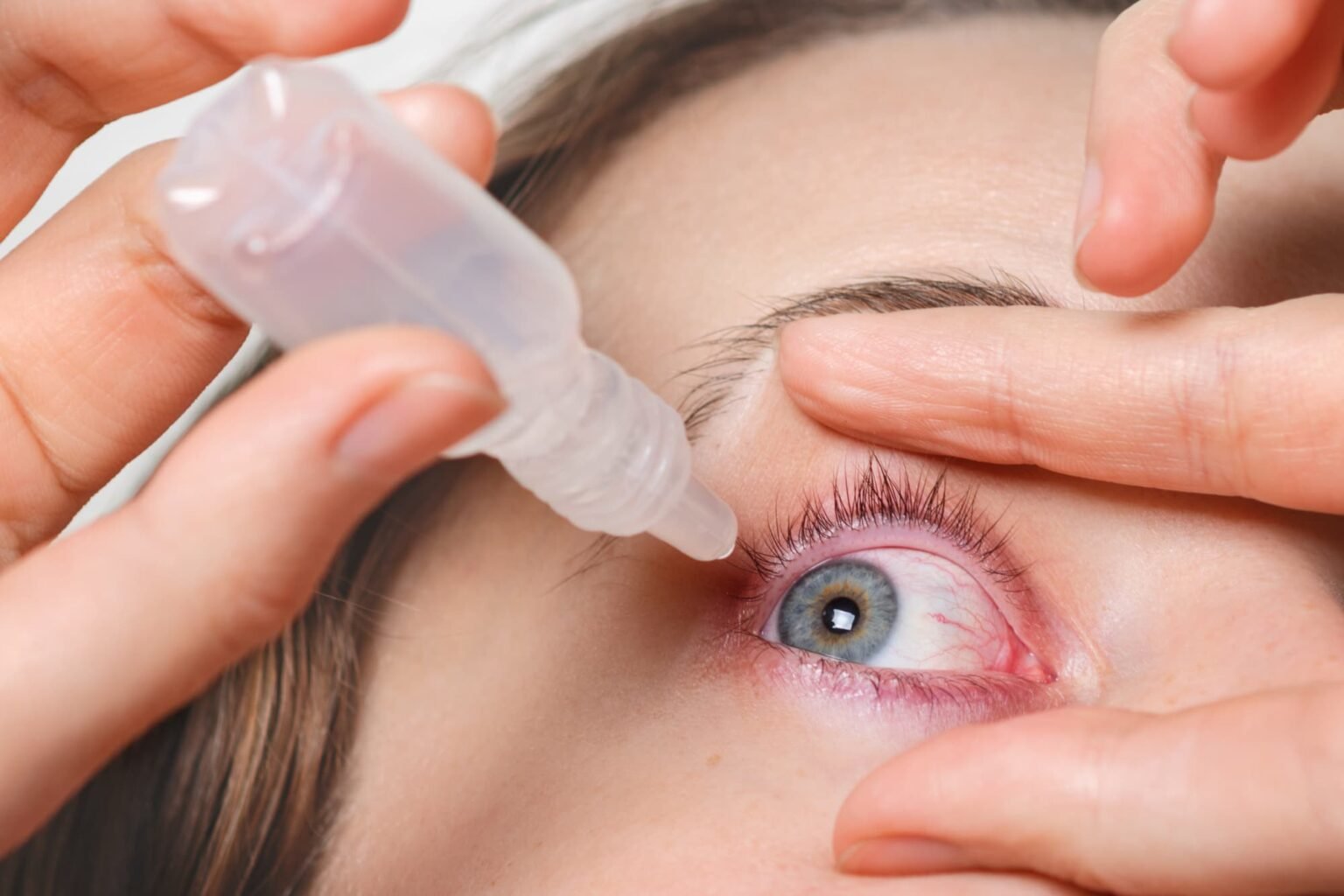NDP EyeCare | Dr. N D Patil | Dr. Gaurav Patil | Cataract | Glaucoma | Oculoplasty | LASIK
Our Latest Equipment is Best to keep your Vision perfect like Eagle!

Dry Eye Care in Nagpur
Understanding Dry Eye Disease
Dry eye disease (DED) arises when the tear film fails to maintain stability on the ocular surface. Tear quantity may decrease or tear quality may degrade. Either way, the eye cannot maintain proper lubrication.
Common underlying mechanisms include:
Meibomian gland dysfunction (MGD) — obstructed or altered oil secretion
Aqueous tear deficiency — lacrimal glands underproduce tears
Evaporative loss — due to environmental factors, blinking deficiency, or ocular surface damage
Inflammation — chronic irritation leads to inflammatory changes in ocular surface tissues
Because dry eye is multifactorial, a specialist needs to evaluate all contributing factors rather than treating symptoms alone.
Signs & Symptoms That Indicate Dry Eye
Patients often approach Dr. Patil with complaints such as:
Persistent burning, stinging, or gritty sensation
Redness or irritation
Sensitivity to light
Blurred or fluctuating vision
Foreign body feeling
Excessive tearing (reflex tearing)
Eye fatigue during reading, screen use, or driving
When someone reports these symptoms, Dr. Patil undertakes a detailed diagnostic workup to uncover the root cause.
Diagnostic Evaluation by Dr. Patil
In his clinic, Dr. Patil follows a structured diagnostic pathway. He records the patient’s ocular and systemic history, including medications, contact lens use, and environmental exposure. Then he performs:
Slit lamp examination to check eyelid margins, conjunctiva, cornea, and tear meniscus
Tear film break-up time (TBUT) to measure tear stability
Schirmer’s test to evaluate tear production
Meibography or meibomian gland imaging (if available) to assess gland health
Ocular surface staining (with fluorescein or lissamine green) to detect epithelial damage
Tear osmolarity and inflammatory biomarkers (if facility allows)
Lid and blink assessment, tear evaporative metrics, and environmental risk evaluation
After diagnosis, he explains findings to the patient and suggests a personalized management plan.
Treatment Strategies & Therapies
Dr. Patil deploys both non-surgical and interventional measures, aiming to restore tear film equilibrium, reduce inflammation, and preserve ocular surface integrity.
Conservative & Supportive Measures
He usually begins with the least invasive options:
Lubricant eye drops / artificial tears (preservative-free) used at regular intervals
Lid hygiene and warm compresses to improve meibomian gland function
Eyelid massage and expression of glands under supervision
Environmental modifications — use of humidifiers, reducing air currents, avoiding smoke
Behavioral adjustments — prompting regular blinking, reducing screen glare, taking breaks
Advanced & Adjunctive Therapies
If basic therapy does not suffice, he escalates care:
Prescription anti-inflammatory agents, such as topical cyclosporine or lifitegrast
Punctal plugs or occlusion (temporary or permanent) to slow tear drainage
Autologous serum eye drops (patient’s own serum) to promote healing
Lipid-based tear formulas for patients with meibomian dysfunction
Innovative procedures like intense pulsed light (IPL) for MGD, thermal pulsation systems, or meibomian gland probing
Tear film stabilizers or agents that modulate mucin production
He monitors response over weeks to months and refines therapy accordingly for optimal comfort.
Why Choose Dr. Patil as Dry Eye Specialist in Nagpur
Many eye doctors manage mild dryness. However, Dr. Patil offers:
Deep subspecialty focus on ocular surface and dry eye, beyond general ophthalmology
Comprehensive diagnostic capabilities including advanced imaging and tear analysis
Customized therapy algorithm tailored to each patient’s etiologies
Long-term follow up and adjustments, ensuring sustained relief
Patient education and empowerment, so patients understand causes and self-care
Because he treats not just symptoms but root causes, patients often enjoy durable outcomes.
Book an Appointment Today
If you are searching for the best glaucoma specialist in Nagpur, look no further than Dr. N.D. Patil at the Centre of Advanced Eye Care. Early intervention is the key to preserving your sight. So, don’t wait until it’s too late—schedule your consultation today and take the first step toward protecting your vision.

